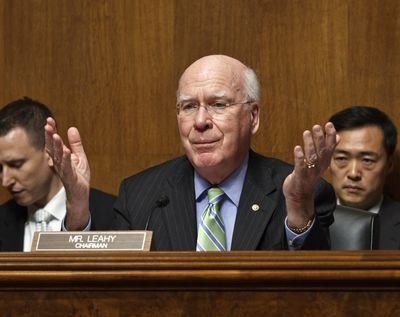Senate rejects NSA surveillance limits
Bill would have cut access to phone records

WASHINGTON – Legislation to keep most Americans’ phone records out of government hands was defeated Tuesday in the Senate, dooming at least for now prospects of national security reforms that supporters said would protect the privacy of law-abiding citizens.
A motion failed to get the necessary 60 votes needed to cut off debate on the bill sponsored by Sen. Patrick Leahy, D-Vt., with most Republicans voting against. The final vote was 58 in favor to 42 against.
One of its more outspoken foes was incoming Senate Majority Leader Mitch McConnell, R-Ky., who said stopping the National Security Agency from collecting telephone dialing records “would end one of our nation’s critical capabilities to gather significant intelligence on terrorist threats.”
Citing the recent beheadings of U.S. citizens in Syria, McConnell said, “This is the worst possible time to be tying our hands behind our backs.”
Born of whistleblower Edward Snowden’s revelations that the NSA was secretly archiving data from virtually every telephone call made in the United States, the Leahy bill, dubbed the USA Freedom Act, would have required the NSA to request such records from telephone companies rather than collect and store the information itself.
Except in emergencies, U.S. intelligence agencies and the FBI would have had to seek approval from the Foreign Intelligence Surveillance Court to access and use the data, and only in cases involving suspected terrorism or espionage. A similar procedure is used now to access the NSA database, but critics say that current system is open to abuse.
“The bill contains key reforms to safeguard Americans’ privacy by prohibiting the indiscriminate collection of their data,” Leahy argued.
At issue are telephone company records of customers and the phone numbers they have dialed, including date, time and duration of calls, but not the conversations themselves.
Privacy advocates vowed to keep fighting to limit government access to telephone records. Some key provisions of the USA Patriot Act – the post-9/11 law that authorized collection of the phone records – expire in June, when the congressional fight over privacy is likely to resume.
After Republicans take control of the Senate in January, it will be difficult to make changes as broad as those proposed by Leahy. But House Republicans have been more favorable to privacy concerns, and advocates hope they will continue to push.